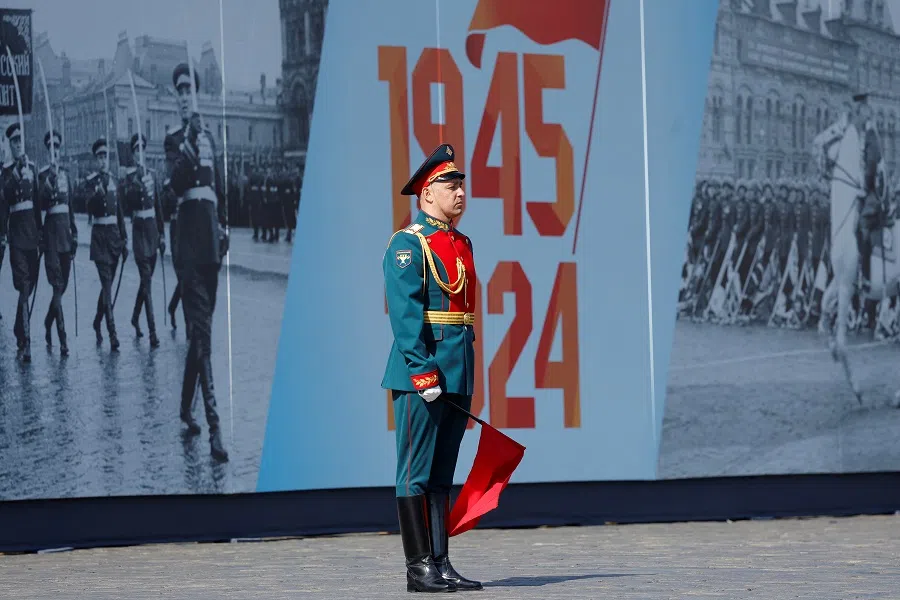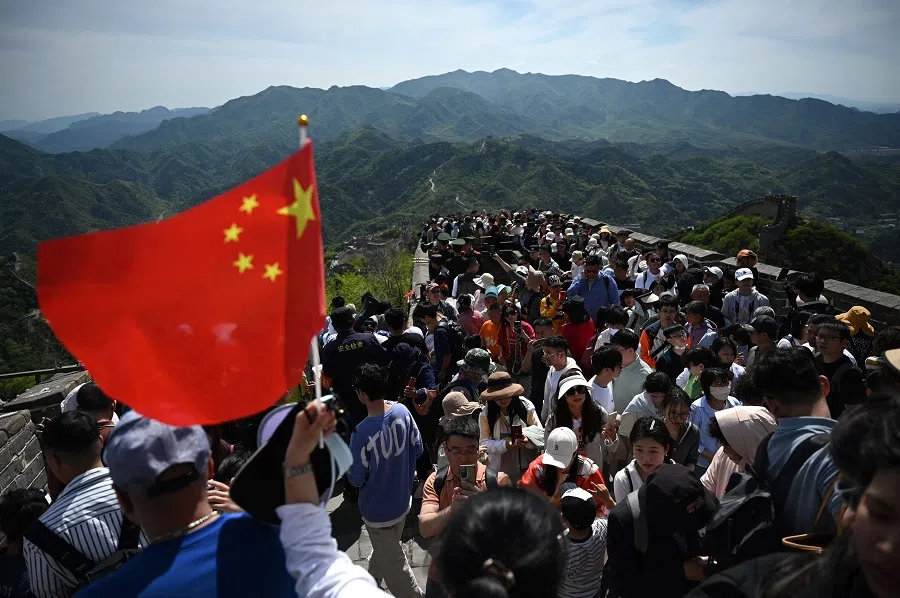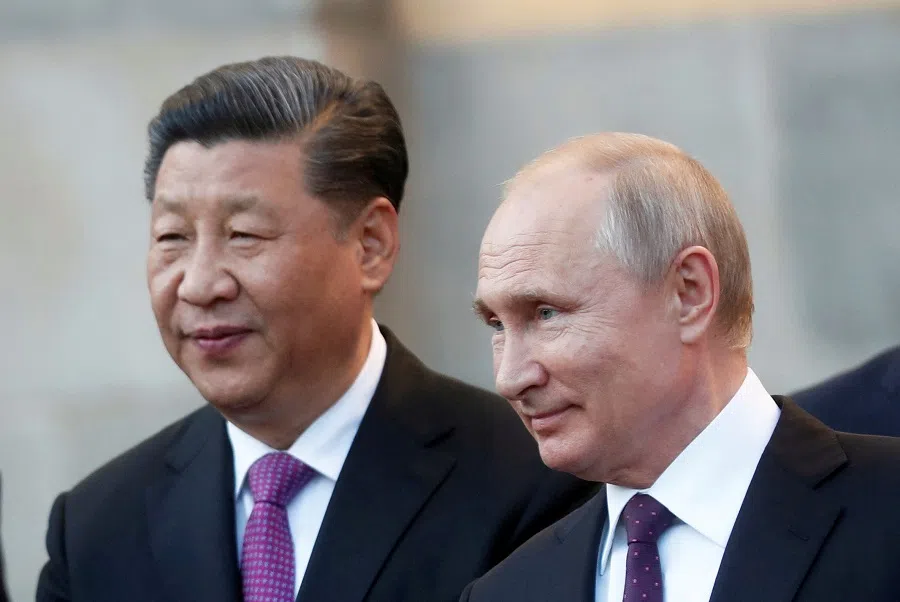Gravitation towards China Russia’s best geopolitical choice
US academic Dmitry Shlapentokh looks at the China-Russia and China-US relationships from a historical perspective, explaining why Russia and China are bound to each other in their common interests, despite centuries-old suspicions.

The current political events in global affairs are characterised by increasing Russia-China contacts and the US’s intentions to undermine the possibility of a symbiotic relationship between two major Eurasian powers.
Russia’s cooperation with China is often explained in the context of traditional paradigms. Such discourse imply that Russia is moving closer to China mostly because authoritarian/totalitarian regimes are natural bedfellows. Western pundits also assess that moving closer to China is the wrong choice for Russia as it reverses Russia’s centuries-long drift to the advanced West and pushes it into the embrace of backward authoritarian Asia. This notion, however, requires further scrutiny which might reveal that while Russia and China are hardly natural allies, the gravitation towards China is Russia’s best geopolitical choice.
Russia and China: history of distrust
China and Russia have a long historical relationship. Neither side, and this is especially the case with China, has forgotten the narrative. In Russian popular discourse, China is often associated with Mongol hordes which devastated the country in the past. After a short honeymoon period in the 1950s, the USSR/Russia engaged in confrontation with Maoist China although both Soviet and China elites professed Marxism.
Russian elites also remember well US President Richard Nixon’s China visit which led to an informal alliance between Beijing and Washington. The fact that Nixon was arch-conservative and China was in the grip of the Cultural Revolution made no difference. During the post-Soviet period, many Russians were also fearful of China’s demographic expansion.
China would have easily sacrificed “Northern barbarians” for the sake of profitable deals with other “barbarians” — the Americans. And in fact, the cooperation with these “barbarians” was essential for China’s “peaceful rise”.

The Chinese have a negative memory as well. They remember well that Russia annexed part of their territories in the past and after the short honeymoon period in the early 1950s, China and Russia became sworn enemies with bloody clashes along the border. The Chinese were not particularly excited about the early post-Soviet era Russian foreign policy focused on good relationships with the West.
As such, the people of Beijing today understand well that Putin’s “love confessions” are due to Russia’s recent predicaments and they are always ready to take advantage of them. In 2014, Putin annexed Crimea and increasing gas exports to the West became clearly impossible. At that point, Moscow made a huge price concession to Beijing and funded “Power of Siberia” which sent gas to China. After beginning the war with Ukraine and the halting of the Nord Stream II project, Russia provided even more price discounts for China.
People in Beijing are hardly in love with the “Northern barbarians”; one should remember that war-loving tribes behind the Great Wall were China’s major problem until the arrival of the Europeans. China would have easily sacrificed “Northern barbarians” for the sake of profitable deals with other “barbarians” — the Americans. And in fact, the cooperation with these “barbarians” was essential for China’s “peaceful rise”.

Still, now that the “Middle Kingdom” has become strong enough to challenge the “barbarians”, one can assume that the time for a free “geopolitical lunch” is over and Beijing expects visible payment for favours. Here is where problems emerge.
China and the US: increasing tensions
In dealing with China, practically all Western — especially American — pundits sound out in unison, as if all of them are controlled by the strict censorship of a totalitarian government.
The template is as follows. First, it is assumed that totalitarian regimes are not viable. The USSR collapse is attributed not to Gorbachev’s liberal reformist blunder but to the internal problems of the system. Thus, China shall either collapse in Soviet fashion or transform itself into a liberal capitalist society. The advent of “end of history” as it was proposed by Francis Fukuyama more than 30 years ago is inevitable.
Second, it is assumed in Washington that a totalitarian regime would not be able to achieve any technological breakthrough and visible economic progress. This ensures that China depends on the US for the foreseeable future.
Regardless of the outcome of war with Ukraine, China would benefit from Russia’s divorce from the West.

But both assumptions started to go wrong and suddenly, Washington is faced with a power that is not just equal in terms of its strength/potential but increasingly moving into the position of a world hegemon. Consequently, Washington is engaging in a policy of containment. First, there has been continuous delivery of sophisticated weapons to Taiwan. Second, the flow of technological know-how and equipment is severely restricted. Third, tariffs on Chinese goods continue to be quite high.
Neither of these developments are pleasing to Beijing. There is an increasing feeling in Beijing that “decoupling” from Washington is quite a possible scenario. This has led to the failure of two recent visits of American top bureaucrats to China. US Treasury Secretary Janet Yellen, returned from Beijing pretty much empty-handed. US Secretary of State Antony Blinken suffered the same fate.
In such a context, Beijing turns to the “Northern barbarians”. Regardless of the outcome of war with Ukraine, China would benefit from Russia’s divorce from the West. In the case of Russia’s victory, it would humiliate and possibly divide the West, both within NATO and the EU. In the case of defeat, Russia would depend on China even more. In any case, Moscow would have no alternative but Beijing. Still, it is not just China which would benefit from the arrangement but Russia as well.
Russia and China: geopolitical symbiosis and the birth of ‘ordus’
Western observers bemoan Russia’s drift to China. Professor Kotkin, who teaches at the prestigious Princeton University, noted that these would reverse centuries of Russia’s attempt to integrate into the West. The reason for these attempts is not elaborated but it is clear: Russians and other countries of Asia/Eurasia looked to the West for a variety of reasons. Still, Western technological prowess and industrial development were the major draws. At present, it is not China but the West, including the US, which has engaged in a steady process of decline as testified by empty factory buildings spread all over the US as “tombstones” an apt Trump analogy.
Russia’s long and deep engagement with China could well change or deform Russia’s European DNA and create a new civilisation.

Conversely, it is not the West but the East, China first among them, which is increasingly becoming the source of advanced technology and an example of efficiency. Russia would benefit from being a vassal of China from such a perspective. The US and the US society in general are not known for having a sense of gratitude and ability to see far ahead.
The US easily betrays its allies (Afghanistan) or does not think much about their interest as seen by Biden’s dealings with the Europeans. The very fact that the US might need allies in the future is not in the minds of the people in Washington who think about immediate gratification.
In Chinese geopolitical design, the interests of the “younger brother” are taken into account. Russia’s long and deep engagement with China could well change or deform Russia’s European DNA and create a new civilisation. Such an alternative vision of the world was perhaps earlier presented in a series of Russian novels written between 2000-2005 under the pen name Kholm Van Zaichik — in the stories, Russia is absorbed by China and becomes “ordus” (the word combines the word “orda” (Horde) and Russia). The author(s) approached these scenarios with irony. Yet in the future, “ordus” might be a viable arrangement which would benefit both Beijing and Moscow.





